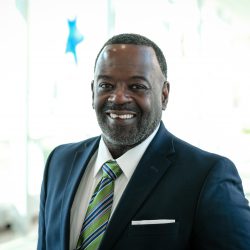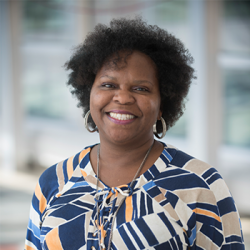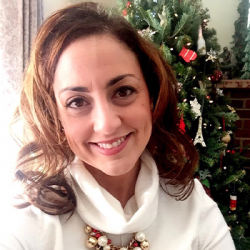The month of February marks Black History Month, a time to celebrate the tremendous milestones and contributions black Americans have made throughout United State’s history.
Black History Month at Children’s Minnesota
At Children’s Minnesota, our Black Employee Empowerment Network (BEEN), an Employee Resource Group (ERG), is taking the lead on hosting Black History Month celebrations for their colleagues. BEEN will host a number of presentations, ceremonies and celebrations to help their coworkers learn about the important roles African Americans have played, and continue to play, in our nation’s history.
We are also excited to share about our newest group: The Nurses of Color ERG. This is one of our largest ERGs with more than 100 members after its first meeting on Jan. 29, 2020. The goal of this ERG is to recruit and retain nurses of color, while providing an ongoing community for our nurses to gain support through mentorship, partnership and professional development.
How do Children’s Minnesota employees commemorate Black History Month?
Laurin Cathey, vice president of human resources
“As a black man in America, Black History Month is meaningful in the fact that it allows reflection upon all the contributions that African Americans have made to national and world culture. The breakthroughs achieved by those who came before me are even more impressive when you think of the conditions and circumstances that many overcame to make their mark…
But Black History Month is also a call to action. It is a chance to support this generation’s difference-makers in politics, technology and the arts. There are still too many categories where we are experiencing ‘the first’… We have work to do to make sure these firsts are not followed by long periods of absence from the foreground on critical topics. The best way to do that is to continue investing time, energy and praise into the next generation of black and brown leaders. To give them early exposure to the tools and resources that the great leaders of history were denied. It is in this way that we ensure black history doesn’t become ancient history.”


James Burroughs, Chief Equity and Inclusion Officer
“Black History Month is important to me because it showcases the amazing history and success of people who look like me. As a kid, I would read text books and news stories that ignored the contributions of black people. The stories in these books were limited to black people as slaves. Black History Month was and is important because during the month of February many people would focus on the breadth and depth of black people and their history and accomplishments. This would show me and others great things about a people who before were relegated to only slaves in the history books. I appreciate and learn every day in February about black history.
I celebrate black history through intentional actions. Those actions include:
- Each week I read articles and books on black heroes.
- Each week I spend money with black owned businesses.
- Each week I intentionally mentor 3 black people.”
Nneka Sederstrom, ethics department director
“As a person of black American and African descent, having the ability to intentionally celebrate the rich and rewarding history of overcoming fuels me for the rest of the year. Every day I celebrate black history and black excellence. February gives others the opportunity to celebrate, too.
How do I celebrate? I am deliberate in my choices during the month! I make sure my kids and I (my husband is getting a little collection going, too) wear clothes to celebrate black people, we read books about black history and black excellence, and I try hard to support as many black owned businesses as I can. It is difficult in Minnesota to achieve this last tradition, but the Internet is making it easier to find businesses elsewhere to support.”


Michael Scribner-O’Pray, staff RN in Children’s Minnesota Minneapolis emergency department
“For me, as a white man, Black History Month is an opportunity to step outside my normal comfort zone and engage in conversations about race that I have a tendency to avoid. I’ve gone through most of my life without having to experience much racial discomfort. One of my co-workers, a black man, will tell you that he has had to spend energy almost every day of his life dealing with some degree of racial discomfort. My instinctive reaction to hearing this is to get defensive and try to distance myself from the systemic racism that has shaped both of our lives. But defensiveness, and guilt don’t help me grow as a person. They only serve to perpetuate a racist system that is getting exactly the results it was designed to achieve.
The more productive response is for me to lean into my racial discomfort and listen. Listening to the experiences of my co-workers of color helps me grow in my understanding…. For me, it’s been a choice. I choose to build my racial stamina and to learn more about black history and the experiences of my co-workers of color because it’s essential to putting Kids First (a Children’s Minnesota value). Nearly half the children and families I take care of here at Children’s are people of color. Caring for them means caring for their outcomes. In Minnesota, children of color experience some of the worst disparities in health care outcomes in our nation. The first step to addressing such inequities is to step outside my comfort zone.”
Marc Gorelick, MD, president and CEO
“Black History Month is more than a chance to celebrate the many contributions African Americans have made to our nation’s history. It is a chance to correct the historical record. It’s fine to celebrate Thurgood Marshall as the first black Supreme Court Justice. But we also need to reflect on why it took 180 years to get the first black Supreme Court Justice. We need to understand the ways racism and white supremacy locked people like Marshall out. The ways those factors affect not just the telling of history, but its very course.
I like to celebrate by reading things that correct the record. I am currently finishing Bryan Stephenson’s “Just Mercy,” and am about to start “This Vast Southern Empire” about the role of slavery in driving American foreign policy.”


Shelly Nauertz, senior diversity and inclusion consultant
“Black History Month is a time to remember and learn more about the contributions of Black Americans who make our country a great nation. For me, as a white woman, it’s so important for me to look inward every day and think intentionally about not only how I can use my white privilege to dismantle systemic racism, but also to think about who my influencers are. I think one of the most important questions I can ask myself is: Who are the people I’m spending time with – both at Children’s and out in the community? These people are critical because they are the ones I listen to, who I learn from and whose lived experiences help me to recognize and check my own bias. They also help me elevate and expand my thinking, inform my behaviors and shape the decisions I make. People from all different cultural backgrounds help shape the lens that I see every person and experience through. Black History Month is also an important opportunity to celebrate the essential role our black employees, leaders and vendors have in writing the next, and what I believe, will be the best chapter for Children’s Minnesota.”
Adriene Thornton, infection preventionist and chair of BEEN
“Black History Month is important because it is an opportunity for us share our heritage, educate about our history, and acknowledge our ancestors who worked tirelessly to create a better world for all.
I have a few movies that focus on black history lessons that I watch with my kids every year to remind them of the price that was paid for them to be able to enjoy the abundant life they live. I also participate in community events focusing on bringing people together to celebrate with music and dance.”


Jennifer Barry, patient care manager, Children’s Minnesota St. Paul neuroscience unit
“Black History Month is meaningful to me as it is a time to reflect on the struggles and pain from the past, celebrate the accomplishments made through time, and highlight and acknowledge the areas in which progress is still sought for African Americans today. Remembering and celebrating brings honor to our nation’s ancestors. As a hiring manager, it’s a time to shine a light on our own part in black history at Children’s. We still are far from matching the communities we serve in terms of diversity and have much improvement to be made in supporting, developing, and retaining African-American employees even today.
I will celebrate throughout this month through attending Black Employee Empowerment Network (BEEN) events at Children’s (and sharing these events with unit staff); continuing to be an engaging participant in the Diversity Book Club that was developed by the teams from the Neuroscience Center in St. Paul and the Emergency Department in Minneapolis; supporting the Nurses of Color ERG, and continuing to be an ally and advocate for our employees of color. I’d also love to try a new restaurant with African-American influences or even try out some new recipes since I love baking and cooking.”
Maria Christu, senior vice president of advocacy and Chief Legal Officer
“Black History Month is an important opportunity to honor the history of African Americans and highlight their contributions to our society. Every year during Black History Month, I learn about amazing individuals who changed the history of our country.
I celebrate by engaging in as many Black History Month activities as I can. I especially like the discussions, concerts and book lists that are available during this time. There is so much to learn and it’s important for all of us to better understand the history and culture of black Americans.”


Megan Peterlinz, community affairs specialist
“Black History Month is meaningful to me because it calls me to actively center on the experiences and accomplishments of the African-American community. Activities, events, presentations and media presented here at Children’s and in the community I live in provide endless opportunities to listen, learn and engage in conversations that inform how I can show up better for my family, co-workers and community.
One way I celebrate is by finding local opportunities to celebrate and support African-American businesses and storytellers: authors, artists, musicians, etc.”